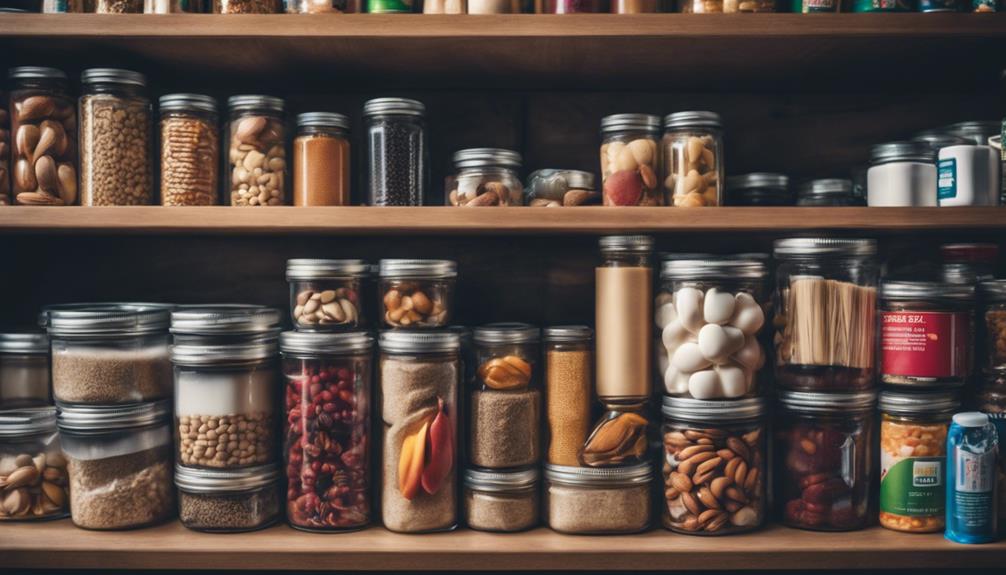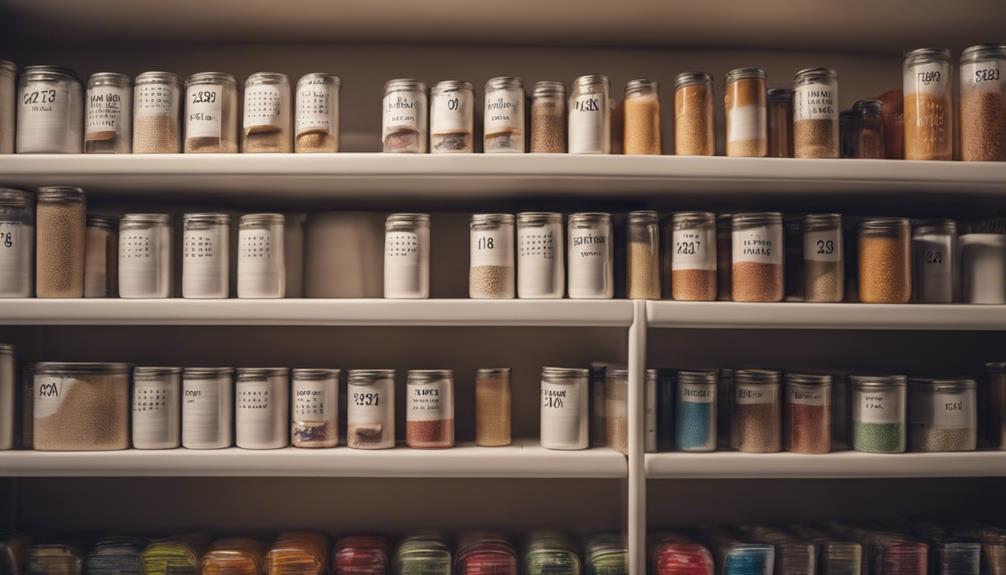Struggling to thrive off the grid can be frustrating. Your financial limitations might mean you can't invest in quality solar panels or proper storage solutions, leading to issues like food spoilage. Daily chores take more time and effort, especially without modern appliances. Developing essential skills like gardening, cooking from scratch, and food preservation is vital for self-sufficiency. Plus, building community support can help you tackle challenges more effectively through shared resources and skills. Embracing these strategies can enhance your off-grid experience, ensuring you make the most of your lifestyle change and face difficulties head-on.
Key Takeaways
- Develop essential skills like gardening and food preservation to reduce reliance on stores and improve self-sufficiency.
- Build strong community networks for resource sharing, skill exchanges, and emotional support during challenging times.
- Implement budgeting and planning strategies to stretch limited resources and manage expenses effectively.
- Explore bartering and trading services to supplement income and minimize costs in daily living.
Financial Challenges of Off-Grid Living
Living off the grid can quickly turn into a financial struggle, especially when limited resources lead to inadequate living conditions and persistent challenges. You might find yourself relying on a small trimaran sailboat, where daily life gets rough due to scant financial means.
Without waste management and running water, simple tasks become intimidating. Your dependency on solar panels and a poor battery bank for electricity could lead to refrigeration issues, forcing you to rely on iceboxes or fresh food each day.
Limited funds make it tough to invest in quality goods, trapping you in a cycle of poverty that stifles improvement. Ultimately, your living conditions might feel like they're stuck in the pre-electrification era, with modern conveniences always just out of reach.
Navigating Simple Living Realities
Steering through the realities of simple living means adapting to a life without modern conveniences that once made daily tasks easier.
You'll quickly realize that daily chores take more time and effort, like cooking on a wood stove instead of using a microwave. Your access to electricity will be limited, forcing you to manage your energy use carefully.
Without refrigeration, you'll need to rely on fresh produce or iceboxes, which can be a challenge. The lack of running water requires you to rethink how you handle sanitation and hygiene.
Embracing this lifestyle often means prioritizing resourcefulness and creativity, turning simple tasks into fulfilling routines while fostering a deeper connection with your environment.
Essential Skills for Off-Grid Life

Mastering essential skills for off-grid life can make a significant difference in your day-to-day survival and comfort.
Start by honing your gardening skills—growing your own food reduces reliance on stores.
Learn basic construction and repair techniques; they'll help you maintain your living space efficiently.
Cooking from scratch is another important skill, allowing you to create nutritious meals from limited ingredients.
Water purification methods, like boiling or using filters, guarantee you have safe drinking water.
Embrace resourcefulness in problem-solving; it's key when facing unexpected challenges.
Finally, familiarize yourself with food preservation techniques—canning, dehydrating, or fermenting food can extend your supplies.
Each skill you develop enhances your self-sufficiency and overall quality of life off the grid.
Economic Factors in Sustainability
Understanding the economic factors in sustainability is essential for making informed choices that enhance your off-grid lifestyle and long-term viability.
You'll face initial setup costs for solar panels and equipment, but these investments can lead to significant savings on utility bills over time.
Consider bartering and trading services with neighbors to supplement your income while minimizing expenses.
Prioritize budgeting and planning to stretch your limited resources further.
Developing skills like gardening or basic construction can improve your self-sufficiency and reduce reliance on costly store-bought goods.
Food Preservation Techniques

Effective food preservation techniques can greatly enhance your off-grid lifestyle by extending the shelf life of your harvests and reducing reliance on store-bought goods. By mastering methods like canning, dehydration, and fermentation, you can enjoy your bounty all year round. Here's a quick overview of key techniques:
| Technique | Benefits |
|---|---|
| Canning | Long shelf life, versatile use |
| Dehydration | Lightweight, space-saving |
| Fermentation | Probiotic benefits, unique flavors |
These techniques not only preserve food but also promote self-sufficiency. Experimenting with different methods can lead to delicious meals and reduce waste, making your off-grid journey more sustainable and rewarding. Don't hesitate to plunge in and start preserving! As you explore a simpler way of living, incorporating revolutionary offgrid toilet innovations can further enhance your self-reliant lifestyle. These advancements in waste management are designed to minimize environmental impact while providing comfort and convenience. By embracing both modern solutions and traditional preservation techniques, you’re well on your way to creating a more sustainable, efficient, and fulfilling off-grid experience.
Building Community Support
Building a strong community network can considerably enhance your off-grid experience by providing essential support, resources, and shared knowledge.
Connecting with others who share your lifestyle can lead to valuable exchanges of tools, equipment, and skills.
Attend local gatherings or join online forums to find like-minded individuals enthusiastic to share their experiences.
Overcoming Daily Living Obstacles

Connecting with a community not only offers support but also helps you tackle the daily challenges of off-grid living more effectively.
By sharing resources and skills, you can overcome obstacles like limited power or inadequate sanitation. Joining local networks allows you to access tools and knowledge that make daily tasks easier.
You'll find that bartering and trading can supplement your income and reduce costs, helping you manage your budget better.
Prioritize learning essential skills like gardening and food preservation to enhance your self-sufficiency.
Collaborating with others fosters resilience, creating a safety net during tough times.
Embrace the collective strength of your community to navigate the complexities of off-grid life and thrive despite the challenges.
Frequently Asked Questions
How Do I Find Affordable Land for Off-Grid Living?
To find affordable land for off-grid living, research rural areas, check local listings, and connect with landowners. Attend community events, join online forums, and consider bartering to lower costs while expanding your network.
What Are the Best Off-Grid Communication Methods?
To communicate off-grid, you can use two-way radios, satellite phones, or ham radios. Each method has its pros and cons, so assess your needs and choose the one that fits your lifestyle best.
How Can I Manage Healthcare off the Grid?
To manage healthcare off the grid, you'll need to prioritize preventive care, stock essential medications, learn first aid skills, and establish connections with local health practitioners for support and resources in emergencies.
What Legal Regulations Exist for Off-Grid Living?
When considering off-grid living, you'll need to research local zoning laws, building codes, and water rights. Understanding regulations guarantees compliance and helps you avoid legal issues in your pursuit of a self-sufficient lifestyle.
How Do I Handle Emergencies Without Modern Conveniences?
To handle emergencies without modern conveniences, you should prioritize essential skills like first aid, fire-starting, and water purification. Keep a well-stocked emergency kit nearby, and practice problem-solving to adapt to unexpected situations effectively.
Conclusion
In the quiet of your off-grid home, you feel both the freedom of self-sufficiency and the weight of financial strain.
The sun sets on days filled with triumphs and setbacks, reminding you that simplicity often comes with complexity.
As you cultivate gardens and forge connections, you embrace the beauty in struggle.
With every challenge you face, you discover resilience.
It's a bittersweet dance—where hardship fuels growth, and the dream of thriving becomes a symbol of your unwavering spirit.










